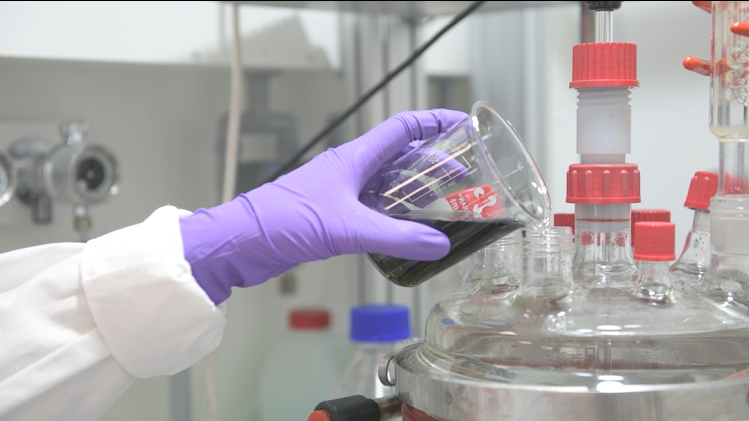Interview — 07 May 2021
Read about the role of Warsaw University of Technology in ASTRABAT and discover the work carried out by Prof. Leszek Niedzicki and Dr. Marta Kasprzyk on the synthetization of salts and additives for new generation of solid electrolytes
Prof. Leszek Niedzicki and Dr. Marta Kasprzyk are researchers and lecturers at the Faculty of Chemistry of Warsaw University of Technology (WUT). Marta Kasprzyk’s work is focused on electrolyte synthesis and preparation, particularly gel and solid electrolytes, as well as development of electrolytes for low temperature applications. Leszek Niedzicki is a senior researcher on design, synthesis and development of new salts and ionic liquids for batteries electrolyte applications (lithium-ion, sodium-ion, etc.) and is an expert in ionics. They both specialize in the optimization and tailoring of electrolytes for specific applications. In this interview, they explain how they contribute to ASTRABAT.
To begin, could you explain the role of your team in ASTRABAT and its relevance for the project’s objectives?
We have two main goals within the project. The first one is to synthesize salts and additives for new generation of solid electrolytes. Lithium salt is the main active ingredient of the electrolyte, which in turn is a key component in the project, as its successful formulation enables the project’s main goal to be achieved: the development of the all-solid-state battery. Our second goal is to optimize the processing and composition of the solid electrolyte.
The Warsaw University of Technology has considerable expertise in polymer electrolytes and the development of new salts, is this exact?
Exact. Our research group, led by Prof. Wieczorek, has over 30 years’ experience and know-how in polymer electrolytes. We draw on this experience and on the ASTRABAT partners to develop new generation of electrolytes for the 3rd generation of Li-ion batteries. Moreover, WUT has been working on the development of new salts for 15 years now: our greatest success is the development and introduction of the LiTDI salt – second in history to be introduced to the lithium-ion batteries and a first for Europe. LiTDI, and our new, proprietary non-fluorine salts (first ones in the world!) as well as their ionic liquids derivatives are used in the ASTRABAT project and are sent to our partners for their respective research.
Congratulations, this is a remarkable result! And could you explain in more detail the research you are carrying out in ASTRABAT?
Apart from the salts and additives synthesis, we also support our partners with electrolyte development. Materials must be tested together (polymer with salt and additives), to facilitate the manufacturing. We assist our partners in the optimization of electrolyte manufacturing. Proper design of the material may significantly influence the properties of the final electrolyte. We are quite lucky that we live in the 21st century and that communication with partners is quite simple, even during the pandemic!
Indeed, technology has allowed ASTRABAT’s work to continue, even during this difficult year… Talking about innovation, which aspects of your research in ASTRABAT are the most pioneering?
There are two innovations that address two issues linked to lithium-ion batteries: the safety of electric vehicles and the protection of the environment.
First, the use of LiTDI or our non-fluorine salts will decrease the amount of fluorine used in batteries. This would make them less of a burden for the environment and recycling. Our salts are also much more stable (thermally and chemically) and less toxic than the salt currently used in batteries. We hope this will make electric vehicles safer.
Second, the batteries based on our salts will work much longer, decreasing the amount of materials processed by the industry.
Thank you, Marta and Leszek for this interview. Is there something you would like to add?
Sure! We believe that a change of mentality about new materials is crucial for the development of the so-called “green” chemistry: the EU must hurry to meet the increasing demand for clean energy, and that is exactly what we aim to achieve with our work. And of course we would be more than happy to see the results of ASTRABAT introduced into the market!



